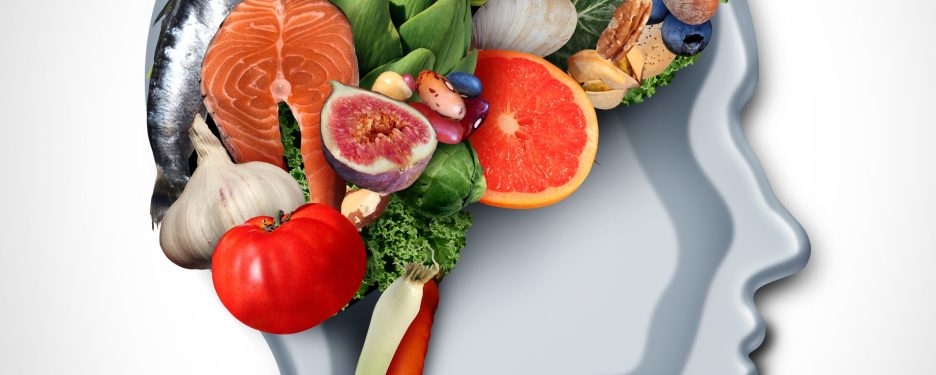Anxiety, PTSD, Depression and Nutrition
When we are faced with a frightening situation, our body naturally goes into a fight-or-flight response, preparing us to either face the danger or escape it. During such a response, the adrenal glands in our body release the stress hormones cortisol and adrenaline. When anxiety becomes excessive or disproportionate to the situation, our body can remain in this heightened state, constantly releasing the stress hormones, even when there is no real danger in front of us. This constant release of stress hormones disrupts our hormonal balance.
Studies have shown that people with anxiety, depression, or PTSD often have unusually high or low cortisol levels. High cortisol can increase appetite, blood sugar, and cravings for sugary, fatty foods, whilst also affecting sleep, mood and immunity. Low cortisol leads to fatigue, trouble waking up in the morning, and a lack of appetite. When we feel stressed, it can be hard to recognise or regulate emotions. To feel better, many turn to comfort foods, like crisps or sweets for quick relief. But this only offers a temporary fix. Healthier ways to manage stress and anxiety include breathwork, yoga, nature walks, singing.
Nutrition plays an important role in easing anxiety and depression.
Making dietary changes may feel overwhelming and even add to your stress. Be kind to yourself – taking small steps can be very effective in a long run, for example, if you drink 3 cups of coffee a day, try cutting back to 2, and build from there. Small positive changes can make a big difference. Seek your doctor’s advice before making major dietary changes and taking any supplements.
Drink more water
Our bodies are about 75% water, and the brain needs even more water – 85%. When we become dehydrated, the body reacts similarly to how it responds to stress, triggering a fight-or-flight mode. This creates a cycle where dehydration causes stress, and stress worsens dehydration. As a result, dehydration can lead to feelings of sadness, anxiety, fatigue, migraines.
Keeping the body hydrated will help the body ease some of the symptoms of depression and anxiety.
- Start your day with a glass of water – preferably not too cold, as cold water can stress the cells of your body. Warm water is more soothing and easier for the body to absorb.
- Remember to stay hydrated by sipping water throughout the day.
- Avoid excessive coffee and alcohol intake as these dehydrate the body even further. Have some herbal teas instead.
Decrease your sugar and refined carbohydrates
High sugar intake has been linked to depression, mood swings, and anxiety. A diet rich in sugar and processed foods cause rapid sugar spikes in the blood, which can make emotions fluctuate and feel more intense.
While sugary foods and drinks offer a quick energy boost, the crash that follows can lead to increased anxiety and fatigue.
Balancing blood sugar levels can ease the symptoms of stress, anxiety and PTSD.
- Cut down on sugar and processed foods and replace them with more complex carbohydrates, such as wholegrain bread, porridge or brown rice.
- Reduce beverages high in sugar. Drink more water, you can flavour the water with a slice of lemon or orange.
- Eat more whole grains, seeds, nuts, berries, green leafy vegetables.
- Combine starchy or sugary foods with protein, fat, and fibre.
- Eat your dessert after a meal and not on an empty stomach.
- Go for a walk after eating sugary foods.
Limit your alcohol and caffeine intake
Caffeine can kickstart your fight-or-flight response, intensifying anxiety and even triggering panic attacks, especially in those sensitive to it. Similarly, heavy alcohol consumption disrupts key brain neurotransmitters, which play an essential role in our mental health, leading to new onsets of anxiety or worsening existing symptoms.
- Limit your alcohol and caffeine intake. You can start by reducing the intake, e.g. if you drink 3 cups of coffee a day, reduce to 2, and build from there.
- If you decide to consume alcohol and caffeine, have them after a meal and not on an empty stomach.
- You can try switching to decaf coffee and non-alcoholic beverages.
Fatty fish and omega 3
Fish oil is rich in omega 3 fatty acids, essential for supporting brain function. These powerful anti-inflammatory compounds play a key role in boosting cognition and maintaining mental health.
- Try to eat two to three portions of oily fish a week, such as mackerel, sardines, salmon.
- Alternatively, look for a good quality fish oil supplement.
- If you are vegan or vegetarian, alternatives can be found in seaweed, algae, walnuts, linseed or flaxseed.
Prebiotics and probiotics for gut health
When we feel stressed or upset, we often feel it in our gut. There is a connection between these two, called "brain-gut axis". The gut is lined with neurons and the bacteria in the gut is capable of producing a variety of key neurotransmitters, such as serotonin, dopamine, GABA and noradrenaline. The imbalance in these key chemicals is associated with mental health difficulties, such as anxiety and depression.
To support the healthy bacteria in your gut, increase your intake of probiotics and prebiotics:
- Consume more probiotic-rich foods e.g. fermented foods (kefir, yoghurt, kimchi, sauerkraut)
- Consume foods rich in prebiotics: whole grains, legumes, tomatoes, bananas, Jerusalem artichokes, broccoli, chicory, onions and garlic.
- Consume omega-3 rich foods that also promote gut health.
- Take probiotic and prebiotic supplements
B Vitamins
B Vitamins are often low in people with anxiety, depression, PTSD and heavy alcohol use. Vitamin B6 in particular supports mental health by helping produce key neurotransmitters like serotonin. It is commonly given to people with ADHD, depression, PMS and other mental health issues.
- Eat diet rich in leafy vegetables: broccoli, kale, spinach, cabbage, citrus fruit, pulses
- Support your gut bacteria as the gut can make or support the pathways to produce the B vitamins.
- When taking supplements, you may opt for Vitamin B Complex which will combine all Vitamin B types.
Vitamin D
In recent years Vitamin D has been described as an important nutrient in stabilising mood and alleviating depression.
- Eat fatty fish such as salmon, mackerel, sardines, dairy products, mushrooms
- Go outdoors more for direct sun exposure;
- Vitamin D supplements are recommended for those on vegan diets, elderly, individuals spending much of their time indoors can take Vitamin D supplements.
Magnesium
There is some research that suggests that magnesium may be useful in decreasing anxiety. It improves brain function, lowers stress hormones like cortisol and increases the release of the neurotransmitter GABA, resulting in a more calm, restful state. Chronic low-level of magnesium is implicated in depression, anxiety, insomnia, irritability, fatigue, confusion and memory loss, as well as personality changes.
- Eat foods such as green leafy vegetables such as spinach, legumes, whole grians, seafood, nuts, tuna.
- You may consider magnesium supplements if you are not getting enough magnesium from foods.
- Magnesium and B6 Vitamin are often given together in PMT, depression and ADHD.
Food intolerance and allergies
Eating foods that your body is intolerant to can cause inflammation in the body, reducing your immunity and leading to many health conditions including mental health problems. If you think you might be intolerant to gluten (in bread) or lactose (in milk), you can ask your GP to be tested.
Eat well with kindness at a time when you need it most.
References:
Batmanghelidj, F. (2008) Your Body's Many Cries for Water. USA: Global Health Solutions
Ross, J. (2003) Mood Cure. New York: Penguin Life.
The Nutritional Healing Foundation course materials

